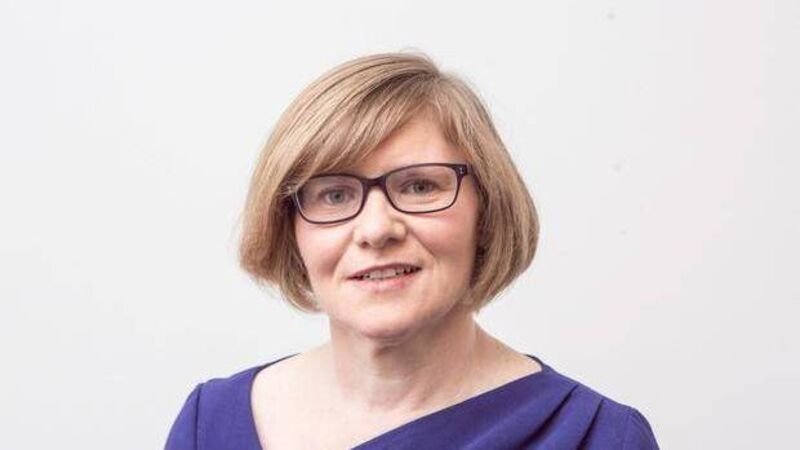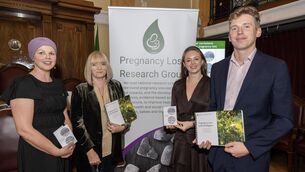We need a new era for women's reproductive healthcare - says National Women's Council

Orla O’Connor, director, National Women’s Council.
IN recent years, Ireland has seen a gradual shift towards placing more importance on women’s reproductive health and education. A Women's Health Taskforce was established by the Department of Health in 2019, a €5 million investment was announced in the Budget to the Women’s Health Fund in 2021 and 2022, as well as smaller initiatives such as free period products being made available in Civic properties around Cork. Each step made in the direction of progress has been celebrated, but has enough been done to protect women’s reproductive rights?
The National Women’s Council has called on the Government to take a holistic approach to deliver on new era for women’s reproductive healthcare.
Launching its new report ‘Every Woman – Towards Reproductive Health, Care and Choice for All’, the National Women’s Council highlighted the need to build on advances for women’s rights and reproductive healthcare.
These rights include a modernised sex education, universal contraception, improved abortion access and the development and investment in comprehensive services and supports that respond to the diverse needs of women and are not rooted in the shames of the past.
Today’s report specified the right of Irish women to these services: “Ensuring a positive transformation in women’s health and advancing women’s reproductive rights is a priority for the National Women’s Council strategic plan.
“NWC’s model of reproductive justice is based on the principle of bodily autonomy. Bodily autonomy is a human right, and one which relies on an enabling legal framework, as well as educational and healthcare supports.”
Speaking at the launch of the report, Every Woman, Orla O’Connor, Director of NWC said: “Every woman will need access to reproductive healthcare over the course of her lifespan.
The report defined reproductive health as complete physical, mental and social wellbeing in all matters relating to the reproductive system and its functions and focused primarily on the areas of abortion, contraception and sexual education.
The generation defining final vote in the Repeal Referendum was a resounding success for the Yes campaign and was hoped to be an end to Irish women having to cross the water to terminate an unplanned pregnancy.
“However, while constitutional change has enabled access to care in Ireland for many women and this is to be celebrated, there is much unfinished business,” NWC’s Women’s Health Coordinator Alana Ryan said She stated that the Government needs to deliver meaningful change through the ongoing Abortion Review, including action on continued gaps in abortion care nationwide and addressing legal restrictions and barriers.
The gaps left in this review, continue to leave Irish women in distress.
Between 2019 and 2021, 775 Irish residents were forced to travel to the UK and many others will have travelled to other jurisdictions or taken abortion pills without clinical oversight or support.
Regarding access to contraception, Alana Ryan said: “It’s been hugely positive to see the free contraception scheme introduced by this Government. We are calling for the scheme to be rolled out to all women and people who need it, but we also urge the Government to focus on the accessibility of the scheme.
“Simple steps such as allowing pharmacists to dispense contraception where appropriate or allowing women to access medical services over the phone would make a huge difference. This is particularly true for women in rural areas, those working in the gig economy who may not be able to take the time off work, and lone parents without childcare. It’s also crucial that there is access to coil or implant insertion and removal through GPs in each local community.” The NWC urged that the use of our pharmacists, in addition to often booked out GPs, so that all women and people who menstruate can avail of these services.
The Government has a responsibility to uphold the rights of children by supporting the provision of comprehensive sex education for all students.
On relationship and sexuality education, Alana Ryan said: “We urgently need a modern curriculum which focuses on issues like gender stereotypes, intimate partner abuse, body diversity, and the harms of pornography. This would be an important intervention in preventing gender-based violence. How this is done is as important as what’s on the page. Teachers have been asking for adequate training, and the curriculum must respond properly to the needs of children and teenagers.” Key to this will be ensuring that relationships and sexuality education is delivered objectively and independent from the religious ethos of schools and should ultimately aim to educate children objectively on sex and relationships and not to aim to scare them with misinformation.
The report recognises that great strides have been made in achieving reproductive rights for women in Ireland, but the NWC stress that this is a crucial time to build upon these advances.
The National Woman’s Council urge that developing these key areas, is a feat they cannot do alone and welcome the Government to support their efforts so that no girl should be denied their bodily rights in Ireland.
The National Women’s Council is the leading national representative organisation for women and women’s groups in Ireland, founded in 1973. We have over 190 member groups and a large and growing community of individual supporters.
The ambition of the National Women’s Council is an Ireland where every woman enjoys true equality and no woman is left behind. This ambition shapes and informs our work, and, with our living values, how we work. We are a movement-building organisation rooted in our membership, working on the whole island of Ireland. We are also part of the international movement to protect and advance women’s and girls’ rights. Our purpose is to lead action for the achievement of women’s and girls’ equality through mobilising, influencing, and building solidarity. Find out more on www.nwci.ie







 App?
App?


